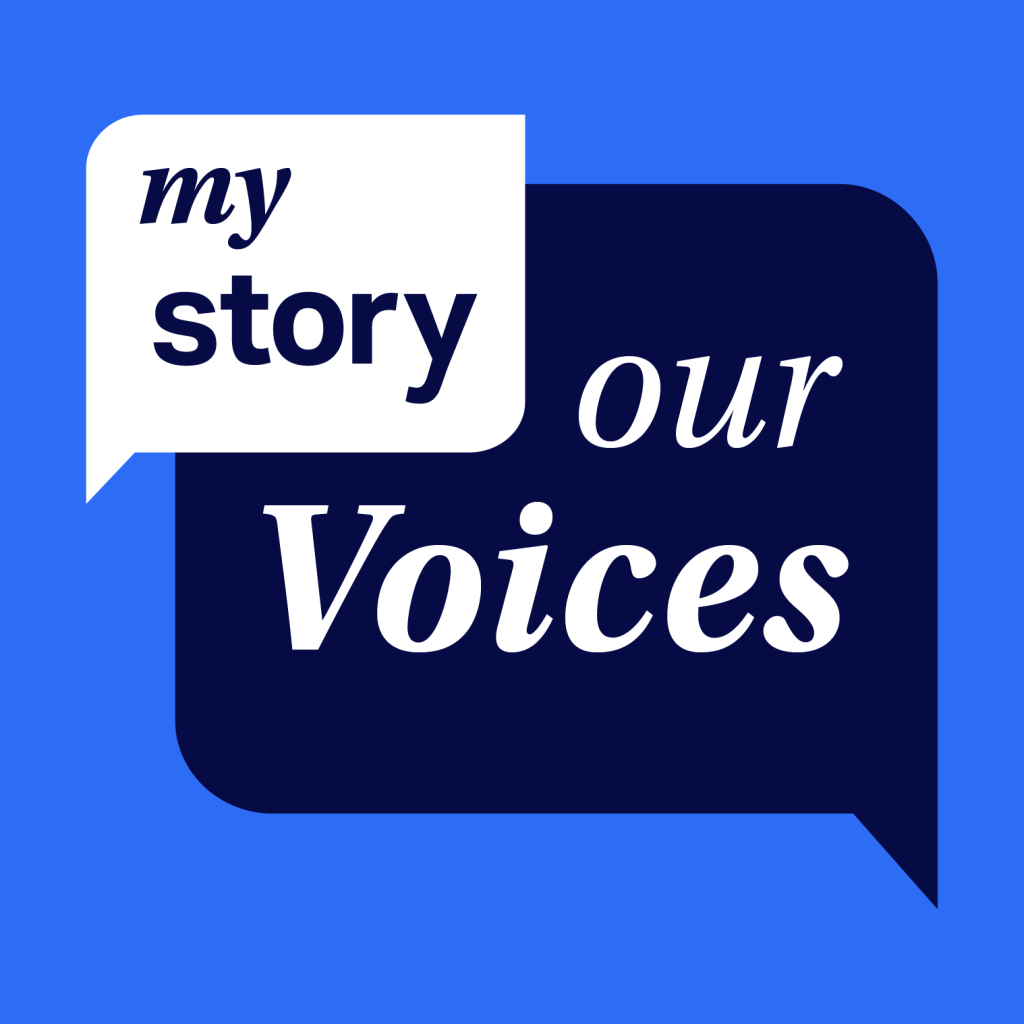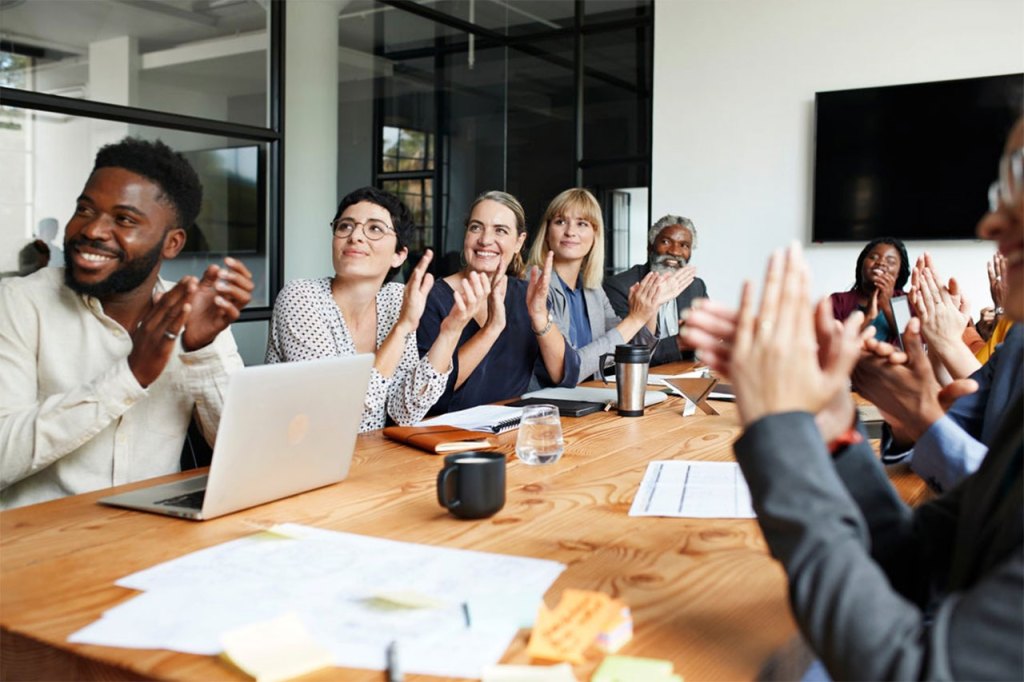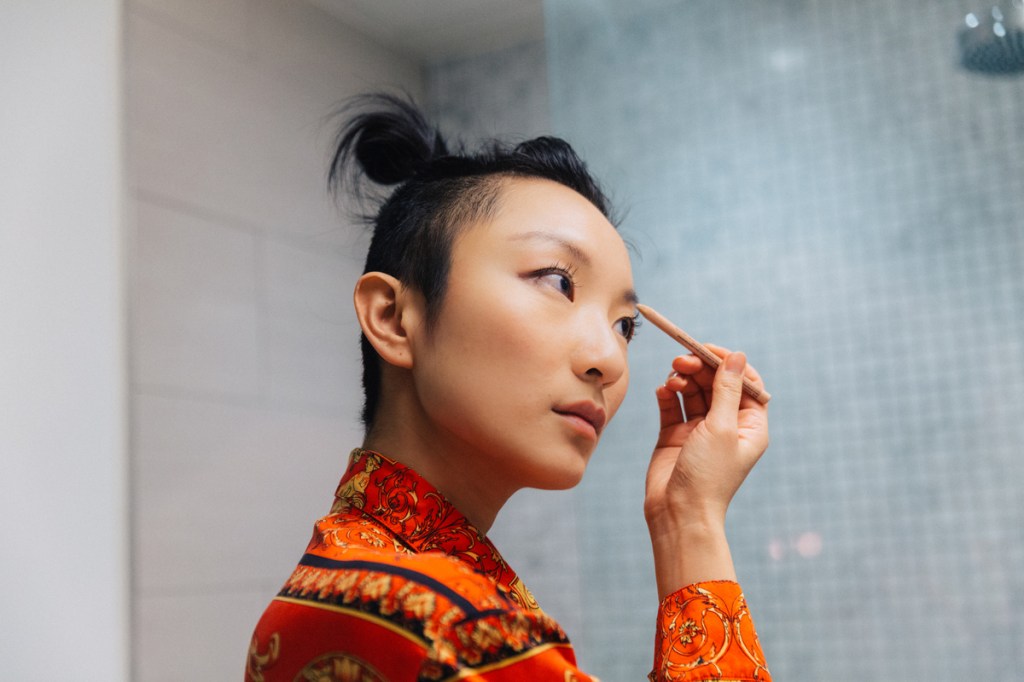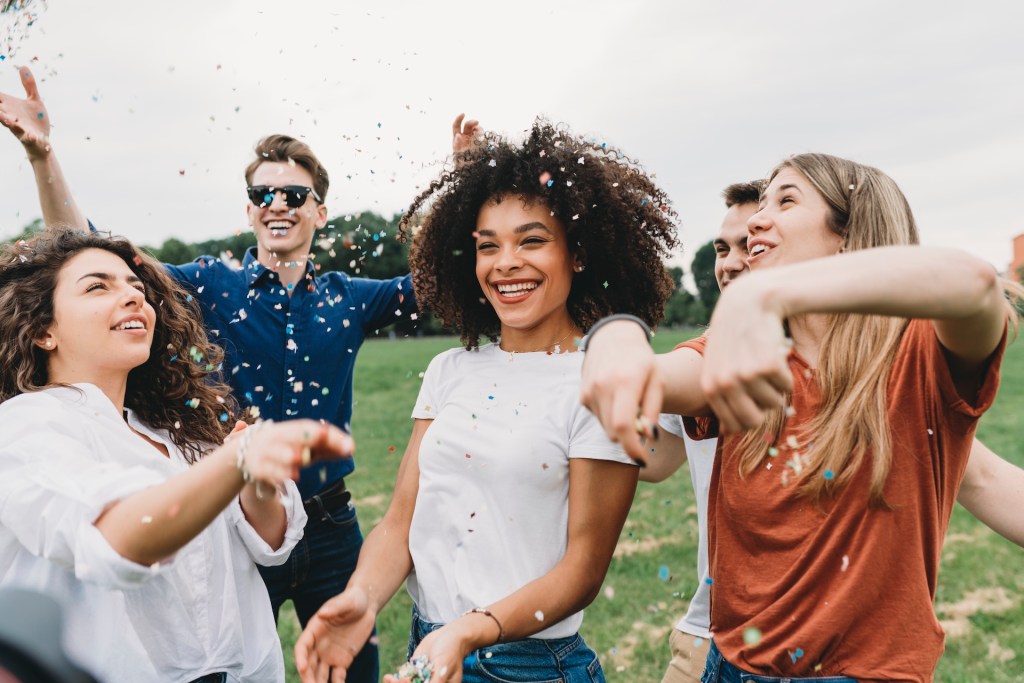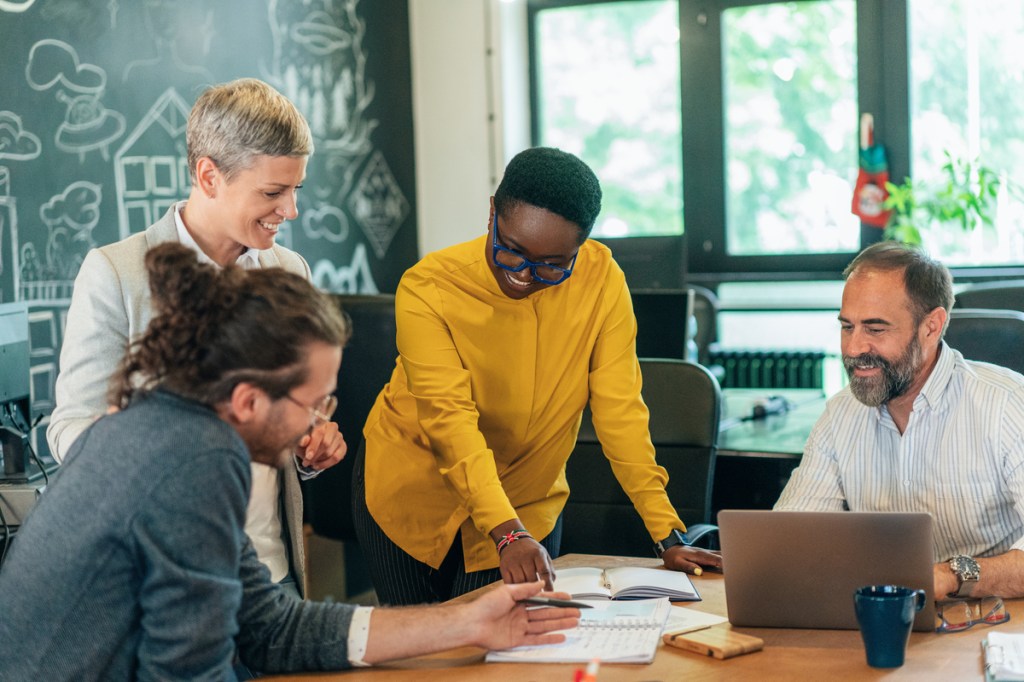Join us as we dive into the inspiring stories from People and Planet Day 2023, where employees from NielsenIQ and GfK came together to make a global impact. From beach cleanups in California to community support in India, discover how our collective efforts are driving positive change for people and the planet. Tune in to hear heartfelt experiences, challenges overcome, and the powerful message of unity and sustainability. Let’s make a difference together!

Summary
“I feel so fortunate for all of the privilege that I can have like, having a good place to live, having a family, having an amazing work that I love to do all the time. I feel like volunteering is somehow giving a little bit back to the people in need and also to the planet that is helping us to live this life.” – Dani Montes de Oca
n this episode of My Story, Our Voices – a podcast of NIQ and part of NielsenIQ’s DEI Learning series – we speak with four organizers of People and Planet Day 2023 – an event that brought together NielsenIQ and GfK associates from around the world to volunteer for causes close to their hearts. This day strove to provide employees with an equal opportunity to strengthen their purpose at work and foster a greater connection to their communities and the planet. The program aligns with the United Nations Sustainable Development Goals and focuses on four pillars: food equity, economic empowerment, education, and climate justice.
The event was particularly significant as it marked the first time NielsenIQ and GfK collaborated on People and Planet Day following their merger into one organization. This added an extra layer of importance and excitement to the day. The global leaders of the event, Dani Montes de Oca and Lukas Koch, shared their experiences and the challenges they faced in organizing such a large-scale event. Dani, based in Santiago de Chile, expressed her excitement and nervousness about the responsibility of leading the initiative globally while Lukas, based in Nuremberg, Germany, highlighted the challenge of building an organizational framework from scratch and the support they received from their colleagues.
Local leaders, Dr. Binesh Jose from India and Ryan Hart from Southern California, also shared their experiences. Dr. Binesh described the unique approach taken in India, where the country was divided into seven regions to cater to the diverse nature of the market. He emphasized the importance of strategic planning, collaboration, and inclusivity in making the event a success. Ryan Hart focused on the local event in Southern California, which included a beach cleanup and recycling initiative. He highlighted the enthusiasm and upbeat energy of the participants and the support from local HR leaders.
The day itself was filled with various activities across the globe. Dani shared a touching story about inviting children with disabilities to the office and providing support to their mothers. Lukas participated in a flea market where outdated branded items were sold to colleagues, and the proceeds were donated to a local charity. Dr. Binesh oversaw logistical arrangements and onsite operations in India, witnessing the passion and dedication of everyone involved. Ryan’s team in Southern California focused on cleaning up the beach, recycling, and donating funds to local needy individuals.
The event was not without its challenges. The global leaders faced difficulties with technology and communication, but the support from their colleagues helped overcome these obstacles. The cross-functional aspect of the event, with teams from different regions and departments working together, was a significant challenge but also a rewarding experience.
Volunteering for People and Planet Day was driven by a desire to make a positive impact on the world. Dani, Lukas, Dr. Binesh, and Ryan all expressed their motivations for participating, ranging from giving back to the community to feeling fortunate for their privileges to be able to make a difference, whether through small actions or larger initiatives.
Dani felt emotionally touched by the gratitude of a mother whose child participated in the event. Lukas was amazed by the flood of social media posts showcasing the global impact of the day. Dr. Binesh found the experience heartwarming and a testament to the power of strategic planning and collaboration. Ryan appreciated the bonding between colleagues and the charity aspect of the event.
People and Planet Day 2023 was a testament to the power of volunteering and the positive impact it can have on individuals, communities, and the planet. The event highlighted the importance of privilege and the opportunity to use it to make a difference. The success of the day was a result of the dedication and passion of the global and local leaders, as well as the enthusiastic participation of employees across the globe.
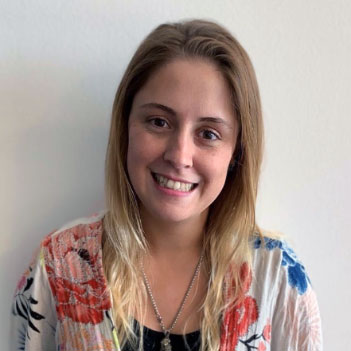
Daniela Montes de Oca
Global Manager, culture and Engagement in the Diversity, Talent & Culture Team
Dani joined NIQ 7 years ago in a local HR role in Chile where she had the opportunity to learn about the business and start developing her creative skills. Since her first year at NIQ she was involved in the volunteer opportunities, where she had the privilege to start leading initiatives locally and then take on a regional leadership role where she learnt much more about the importance of helping the communities and the impact that is done. Since July, 2021 she joined the Diversity, Talent & Culture team as Manager, Culture & Engagement being the responsible for the global onboarding program and part of the Engage! survey team. Her interests of connecting with others and meeting new people has helped her to be part on different and fun projects, and to take the global leader role for this 2023 People & Planet Day.
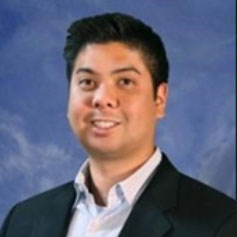
Ryan Hart
Senior Director of Consumer & Marketing Insights
Ryan Hart is a Senior Director of Consumer & Marketing Insights at GfK – an NIQ company. In his current role, he partners with automotive marketing teams throughout US, Canada and Mexico. He currently leads his team in consulting, consumer insights, market research and analytics. Ryan has also received his B.S. in Business and Masters in Business Administration. In addition, Ryan recently supported a company wide initiative during People & Planet where he coordinated GfK/NIQ efforts to support local communities in Southern California.
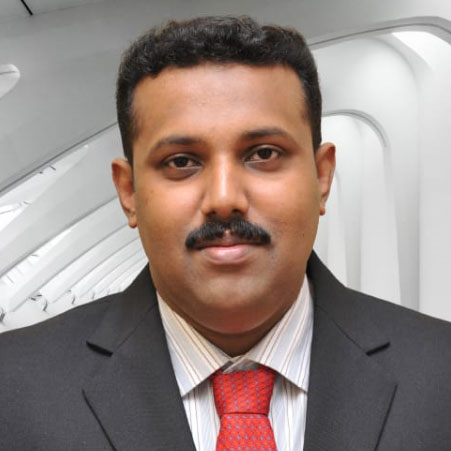
Dr. Binesh Jose
Director, Technology
Dr. Binesh, a technology leader with over two decades of industrial expertise, resides in Kochi, India. Renowned as an adept architect of intelligent systems, Dr. Binesh specializes in leveraging advanced data science methodologies and big data frameworks to maximize business value through insightful data analytics. They have a remarkable track record of delivering cutting-edge applications and championing the elevation of data as a strategic asset. Proficient in team building and people management, Dr. Binesh fosters collaborative and high-performing work environments.In the academic realm, Dr. Binesh stands as an author of more than a dozen reputed publications and holds the prestigious position of Chair at flagship conferences for both IEEE and ACM. Their influence extends to industry-academia collaboration, where they play a pivotal role in driving meaningful partnerships, advancing research, and bridging the gap between theory and practical application. Notably, Dr. Binesh is an advisor to law enforcement agencies, offering expertise in crime analysis and predictive policing, showcasing their dedication to societal well-being and safety. Beyond their professional pursuits, Dr. Binesh finds joy in cricket and American football. Moreover, they are deeply committed to promoting diversity, equity, and inclusion within the industry, leaving a lasting impact wherever their journey takes them.
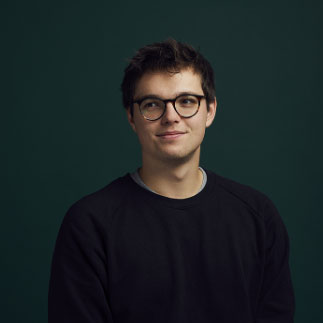
Lukas Koch
Global Employer Branding Manager
Lukas works as the Global Employer Branding Manager at GfK. In his role, he focuses on talent marketing and HR branding, acting as a liaison between the brand, creative, and HR teams. He supports talent acquisition teams in finding and attracting new colleagues across all talent touchpoints. This includes building promotional material, running marketing campaigns, and offering event support. Following the merger with NIQ, Lukas assumed the position of Global and Regional Leader for Europe at GfK for this year’s People and Planet Day event. In this capacity, he played a crucial role in establishing the required organizational frameworks to enable GfK employees to volunteer in their communities worldwide, positively impacting people’s lives and the planet.
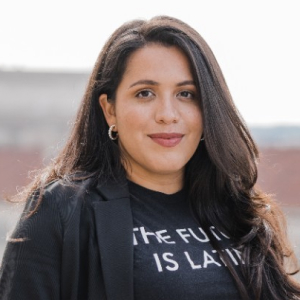
Ryan Hart
Senior Director of Consumer & Marketing Insights
Ryan Hart is a Senior Director of Consumer & Marketing Insights at GfK – an NIQ company. In his current role, he partners with automotive marketing teams throughout US, Canada and Mexico. He currently leads his team in consulting, consumer insights, market research and analytics. Ryan has also received his B.S. in Business and Masters in Business Administration. In addition, Ryan recently supported a company wide initiative during People & Planet where he coordinated GfK/NIQ efforts to support local communities in Southern California.
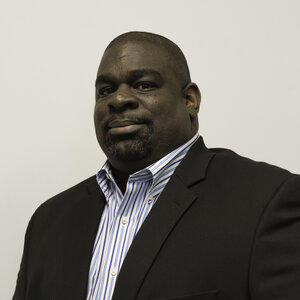
Dr. Binesh Jose
Director, Technology
Dr. Binesh, a technology leader with over two decades of industrial expertise, resides in Kochi, India. Renowned as an adept architect of intelligent systems, Dr. Binesh specializes in leveraging advanced data science methodologies and big data frameworks to maximize business value through insightful data analytics. They have a remarkable track record of delivering cutting-edge applications and championing the elevation of data as a strategic asset. Proficient in team building and people management, Dr. Binesh fosters collaborative and high-performing work environments.In the academic realm, Dr. Binesh stands as an author of more than a dozen reputed publications and holds the prestigious position of Chair at flagship conferences for both IEEE and ACM. Their influence extends to industry-academia collaboration, where they play a pivotal role in driving meaningful partnerships, advancing research, and bridging the gap between theory and practical application. Notably, Dr. Binesh is an advisor to law enforcement agencies, offering expertise in crime analysis and predictive policing, showcasing their dedication to societal well-being and safety. Beyond their professional pursuits, Dr. Binesh finds joy in cricket and American football. Moreover, they are deeply committed to promoting diversity, equity, and inclusion within the industry, leaving a lasting impact wherever their journey takes them.
Transcript
The views and opinions expressed in this podcast belong to the individuals who shared them and do not necessarily represent NielsenIQ. Note that this podcast discusses sensitive topics that may be triggering for some. For more information specific to this episode, see the episode description.
Jake Conlin: Hi everyone and welcome to My Blank Story, a core component of NielsenIQ’s DEI learning series, Me & You. My name is Jake Conlin, and if this is your first time tuning in then let me tell you what this podcast is all about. In a nutshell, it’s about stories, your stories. We think stories are important because when we tell them we open the door and allow others to see the experiences that shaped us, that challenged us and helped us grow. By doing this, we can create a culture where open dialogue is encouraged, and we can have a space to discuss important topics in a transparent and courageous manner. So, minimize that email tab, mute your chat, and take a little break to listen to a NielsenIQ story.
James Anderson: Thank you everyone for tuning in to another episode of My Blank Story a DEI podcast. My name is James Anderson. My title here at NielsenIQ is Senior Analyst on the manufacturing side and my pronouns are he, him. I’m today joined by my co-host Funda.
Funda Kalemci: Hi everyone. Thank you so much for joining in. Hi James. As James said, my name is Funda. My pronouns are she and her. I am the global leader for Diversity, Equity and Inclusion and Corporate Citizenship at NielsenIQ. With that, one of the things that I am most proud of and what I love the most doing in this company is our volunteering program, which is the People & Planet Program. And the key signature event for the People & Planet Program is our People & Planet Day and that is the day our entire workforce is invited to come join us to volunteer for a cause that is near to them. So today, we are going to talk to our global and local leaders who made this day happen. But before we get to them, I just wanted to talk a little bit about what the People & Planet Program is. People & Planet Program is our volunteering program, which is to provide all our employees with an equal opportunity to strengthen their purpose at work and have a greater connection and commitment to people, to communities that we live and work in, and the planet – our planet Earth. Within that program, what we aim to do is… we have looked at the United Nations Sustainable Development Goals, and we’ve created four pillars that align with our business and how we can make an impact to both people and the planet, right. And those four pillars are food equity, economic empowerment, education, and climate justice. This year, we held our second People & Planet Day, but it was another first for us because it was right after we had combined our forces with our GfK colleagues. So, it was the first time we did this as a combined company. So, it had another layer of importance for us. So, without further ado, I want to welcome our guests and I would like them to introduce themselves. So, Dani and Lukas – welcome as our global People & Planet leaders. Dani, do you want to go first and introduce yourself?
Dani Montes de Oca: Sure. Hi everyone and thank you very much and having me here today. I’m super excited to be sharing this opportunity and experience. As Funda mentioned, my name is Daniela, but I prefer to be called Dani. My pronouns are she, her, hers and I’m based in Santiago de Chile. I’m currently working on… as a Global Manager of Cultural Engagement in the Diversity, Talent and Culture team, and as Funda was mentioning, too, this year I had this amazing opportunity only in this initiative globally alongside with Lukas and the team.
Lukas Koch: Thanks for inviting us. I’m Lukas and the Global Employer Branding Manager at GfK. I’m based in Nuremberg, in Germany, south of Germany. I am working as the Global Employer Branding Manager focused on Talent Marketing, HR Branding, and as a link between brand creative teams and HR and helping to support the talent acquisition teams. And it was my pleasure to be part of the People & Planet Day, the first time for GfK ever. It was an adventure, I can tell.
Funda Kalemci: Awesome. Thank you so much both and welcome to the show.
James Anderson: Yes. Now we’re also joined by two of our local People & Planet Day leaders who led initiatives within their region or city. Dani and Lukas were responsible for helping to organize at the global level and our two local folks were taking care of logistics on the ground on the day, getting all of the information out to our associates so they could have a great People & Planet Day. Those leaders are Dr. Binesh Jose and Ryan Hart. Would you two like to introduce yourself, please?
Dr. Binesh Jose: Yeah, sure. Thanks for inviting us. I’m Dr. Binesh, a technology leader with almost 20 years of industrial experience. I’m residing at the lovely city of Kochi that is in India called the Queen of Arabian Sea. My main passion lies in the leveraging of advanced technology, especially on data science and big data framework and profound insight and maximizing resources and money through data analytics. I pronounce myself as a he, him, his and I’m more passionate about the academic research as well. So, I’m fostering partnership with the universities and I’m an author and I’m speaker and I have more than a… dozens of reputed publications. I also work with our law enforcement agencies for crime analysis and predictive policing as a voluntary service.
Ryan Hart: My name is Ryan Hart. I’m a senior director of Consumer Insights and Marketing and I’m based here in Southern California. In my current role, I do work with all of our different client marketing teams throughout the US, Canada and Mexico markets – so throughout North America. And what we’re really focused in on is our consulting, consumer insights, market research, and analytics. In addition to all that, we did have the opportunity to kind of start supporting this company-wide initiative of People & Planet and trying to coordinate some of these efforts. So, really happy to be here.
Funda Kalemci: Awesome. Thank you so much for being here team. I can’t tell you how excited I am to talk about your experiences. We have been having a volunteer day at the company for over 10 years already. But since the recent changes to our company structure and everything we have revised the program as People & Planet and that’s why we have the first last year. But I have to admit – the success that we have achieved this year, to me is amazing and I’m not saying that as the leader of this program, but as one of the volunteers. I was really awestruck at our team’s engagement. So, I’ll start with a few numbers. I was so happy to see, like, over 13,000 associates joining these events across the globe. Over 88 countries, within 550… and even more than 550 events. Obviously, with those numbers, it’s not just one person’s leadership that makes it happen. It happens as a teamwork and behind that teamwork stood very strong global leaders, two of which are Dani and Lukas. So, let’s start with Dani. Dani, I want to ask you… first of all, before asking, thank you so much for everything you have done in the past few months for this day to become a success. But I want to get your experience through this process. How was it like [for] you?
Dani Montes de Oca: Thank you for that. For me, it was an amazing experience. I have been in the company for almost seven years now. And from the beginning, I always have been involved in these kinds of activities, first locally, then regionally. So, the idea that I can do this globally, I was like oh my God, I felt so excited. But also, then I started to realize the huge responsibility. So, in all honesty, I felt a bit nervous. I don’t want to lie. But once I met the regional leader team and also the GfK teams, it was like, oh my God, this is something that will be huge and I’m so lucky to be part of it. And also because of Funda and your leadership Funda, that is always a pleasure to be working with. That makes all the things easier. So I had an amazing experience. It was a new one, but also, I got the chance to learn more about my skills too and on what I’m good at and also, what I need to improve. That is a huge piece of growing in the company and also personally. So, like a quick overview, I can say that it was an amazing experience. I’m looking forward for next year. Hopefully I can help, or I can be part of this team too. And with this I will also say that it was a pleasure to work with Lukas. So, I will also give the word to him to share their experience.
Funda Kalemci: Thank you, Dani. Before…you know, I let you speak… Lukas, can you please start from where I started begging you to become one of the global leaders?
Lukas Koch: Yes. So, a little bit of a story. Well, I think it was when I came back from vacation, I found the notification from Funda that I was… had the honor to be nominated as a global leader for the People & Planet Day. That was quite a surprise, let’s say, but it was a good surprise, of course. Also like an exciting surprise for the… yeah, this is how I came to my new role for the last months. The thing after our combination, so we never had something similar at GfK before. So, we have, the whole organization doesn’t have any experience organizing such an event on a global scale for all associates around the globe, and a completely new challenge and new project. So, there was also no one else who could be reached out to or could I ask for tips and tricks on how to do it there within our organization. But of course, we had our beloved NIQ colleagues that Funda… you all had this in the past and that was a huge help. Also, I wasn’t alone, so with me there was Alicia and Tiffany, also announced as global leaders that was a huge help. We were a team of three people, and we had the challenge to build a framework, an organizational framework from scratch. So, of course at first, I loved the idea, enabling all associates to use up to one full working day for volunteering and community service. But, like before studying it also, seemed a bit unfeasible to provide volunteer opportunities for all employees around the globe because of the short notice we had… we hadn’t much time to organize it, so we had reach up into it and this… I think that was the best thing for me, not having the time to really think about everything that could be, that could come in the next weeks. So, we jumped right into it, started building the organizational structure, and then it became a really… a real feasible experience and a real good experience. So, once we saw our colleagues getting engaged with their ideas, like being proactive reaching out to charities, planning initiatives, that was pretty amazing. And from there it became a real pleasure to work on all the tasks necessary to make this happen. So, yeah, thanks to Funda for nominating me for this little surprise gift. And thanks also for, as you said Dani, for all the support by our peers and our global leader peers and all the other leaders like you, Dani, so, I really appreciate the chance to participate.
Funda Kalemci: Thank you so much, Lukas. And I just want to clarify one thing for our audience. Lukas is being so kind by saying nominated, but I really begged him. I want to clarify that fact because our audience should understand, I think, how volunteer work is done, right? Like, it’s not a part of anyone’s day job. People do this with passion behind their actions. So as a leader, I mean, I feel so lucky to find passionate people like Dani and Lukas and Alicia and Tiffany and Marian, who were the other global leaders. But without their actual work behind the scenes, none of it happens. So, thank you so much for rising to the occasion, both Dani and Lukas – for answering my begging cries.
James Anderson: And on that note, let’s turn to our local leaders. Now, we’ve heard from the global level, I’m curious to know what your experience was like, Ryan and Dr. Binesh. You’ve just heard Dani and Lukas speak about theirs. What was it like for you to be invited into the process? And what kind of challenges did you face or what did you think the experience would be? And did they change as you went along?
Dr. Binesh Jose: Yeah. So, it’s quite different, right? My experience in organizing the People & Planet Day at India was truly, truly remarkable. And it is significantly different than what Dani and Lukas have described on a global level. Given the immense scale and diverse nature of India market, nearly 10,000 associates spread across the country, we tailored our approach to suit the unique dynamics of India. We strategically divided the Indian market into seven regions considering location, culture, nuance, enabling us to plan and execute effectively. I believe the formation of a core committee we called CC was pivotal in overseeing the event progress at national level and providing guidance and ensuring uniformity in our approach. And in every solo level, we established subcommittees each with a specialized function, including planning and collaboration, execution, fundraising, promotions, etc. So, this approach allowed us to characterize specific need and preference of each region while hosting a collaboration with NGOs and local communities. The focus extends beyond the successful execution of People & Planet Day. We aim to establish a sustainable process and organizational structure for future volunteering. We emphasized not only on the impact of the event, but also the inclusivity and broad participation of various groups, making our approach distinctly Indian. Overall, the experience was testament to the power of strategic planning, collaboration and inclusivity, showing the unique context and requirement of Indian market in creating a successful and impactful volunteering initiative like People & Planet Day.
Ryan Hart: For our experience, I mean, it definitely sounds like Dr. Binesh had more of that country aspect, you know. I was fortunate enough to do more of the local event in our market, which is like the Southern California area, and we were also accompanied by several other people throughout the US. But what I can kind of give you is kind of my experiences and what we kind of did over in the LA area. The first thing was it was really great just to meet so many new faces and I think that was probably one of the biggest things for everyone. As everyone mentioned, it’s really the coordination of the events and really working with the NIQ teams, GfK, as the merging companies together, and it was really kind of a great experience to try to really talk to people. And I think the biggest challenge was trying to find an event that would be kind of suitable for everyone, right? What would people be willing to kind of help out, go to, and what would we do to kind of just rally the troops a little bit. Here I will say though that we did have a lot of support from our local HR leaders. So, like Tiffany on our end was really instrumental in helping us kind of put things together. So that goes without saying, just kind of give credit where credit’s due. But overall, I think, you know, in terms of some of what our expectations were going into this, it was really to try to create that event, help the community and also do a little bonding between us, NIQ and the rest of the teams.
James Anderson: Ryan, I just want to pick up on something you said there. Now obviously an event like this is a huge lift for, you know, all involved, especially now that we are a combined company. That obviously added some challenges as well. I’ll sort of throw this out to the group. I’m just wondering for the group, especially perhaps at the global level, what were the challenges of this cross-functional aspect of getting everyone involved? Just wondering what that might have been like. What challenges did you face in doing that?
Lukas Koch: On a global level, I can say that the good news is it wasn’t the people, it wasn’t the organizational structure, so that all was… it was great. The support for the people was great and we were able to build the structure. I think the biggest challenge for us was the technical systems. I think it was pretty difficult to really share information across our organizational systems and that required a lot of like extra work, time, etc. to get everyone up to date and keep everything in the right place and share the progress of the project with each and everyone.
Dani Montes de Oca: I’m completely aligned with Lukas, one of the biggest things was the technology, and not only because of the way that people could participate, but also how we can make sure that everyone was getting the right messages, the right communications, and the right information that we wanted to share with them. And also, it happened that as much time that you can have to plan these things, you will ever need more time to do it. And now that we have this new challenge in being two companies, one with the first time, it was also like how we can connect between each other to make something great. But finally, as Lukas was saying, it was not a problem with the people. So that was really, really solved. And I think it was, at the end, the best experience for everyone and also, in that way I feel like next year will be easier – fingers crossed on that – that we will have the same technology programs on everything to make it easier. But otherwise, I know that the people know and understand now more than ever the importance on doing this. So, I think that that is a challenge accomplished, to say it somehow.
James Anderson: So, with the two companies coming together then, I’m just wondering … working across function like that and across teams, were there any surprises along the way when you were sort of developing in your respective areas – whether it was globally or locally – things that sort of surprised you as you were going through the experience of pulling it all together?
Ryan Hart: You know, I can have hop in a little bit on that one. I think the biggest surprise to us was the amount of colleagues that we had in the local market, right? So, in general, we just had two really big teams that kind of coordinated all of those efforts. But really also, it was quite interesting to see how receptive everyone at NIQ was, you know, even on the GfK side – once we started sending out those big emails, how quickly everyone responded. Again, I kind of mentioned HR a couple of times, like just getting the right listings, getting the right people together. But once we started sending everything out, it was really smooth and there was a lot of excitement. But, overall, I probably have to say there was just a lot of upbeat energy going on throughout the event for us.
James Anderson: And so, with that, with that much planning going into that day, I guess it’s only fair to sort of ask what each of you were actually doing on the day that we held People & Planet Day across the company.
Funda Kalemci: I would love to hear everyone’s stories on that, because that’s what counts, right? Like on the ground, what was happening? Because we, we… let’s face it, we went crazy with all the planning. We met every week. We met at a global level and at a regional level, and at the local level teams were preparing it. But what happened on the ground? Maybe…maybe… let’s start with Ryan, because I love the fact that you realized we had more associates than you realized. First of all, what did you do and how did it go? How was the day?
Ryan Hart: So, well what we did is, we tried to do it at a few different levels. And the first one was…ours was a, you know, a beach cleanup. We’re in Southern California, so it kind of makes a little bit of sense for us, but we’re trying to give back to that level. So that was our event. It was really interesting. We did this for several hours, kind of went out there, collected some things. Now what I mean by we did this at a few different levels is one… ok, more than just a beach cleanup. One, we’re also like trying to pick up recycling pieces and kind of use that. What we’re able to do, ‘cause we’re in the Long Beach area also, is collect a lot of the recycling and actually donate that to some of the local recycling centers. And then also, we were able to kind of use some of those funds to give back to the you know, some of the needy people, homeless, what have you, in the local areas. So, you know, it’s kind of a few different things. We did the beach cleanup. We also did a little bit of the recycling. And then also tried to do more of that people part of the aspect, you know, helping our community or local communities and then people kind of in need. So, we did all of that together. So, it was a really interesting event, but kind of fulfilling on that, that aspect, right. Saving the planet, giving back to the people. And you know, overall, like I mentioned with the NIQ team and the GfK team, we had people from all levels show up and everyone was just really enthusiastic and really just glad to kind of meet each other and interact for the first time together. I thought that was a really big part of the event as well.
Funda Kalemci: I love that. I love hearing all these stories. Dr. Binesh, I know India is one of our biggest markets and we have over 9,000 associates, and you mentioned earlier that you strategically divided the country in seven different regions, and you organized events based on that. And like, I am in awe of everything you have done. But I’m curious what you personally did on the ground. Which events were you a part of?
Dr. Binesh: Yeah, I would say really amazing. The planning of this exceptional day was meticulous, and on the day itself, each team member assumed a specific role to ensure that event’s success. Personally, I took on a multi-faceted role overseeing logistical arrangements, coordinating with the various stakeholders and facilitating smooth communication between teams. Additionally, I was actively involved in managing onsite operations to guarantee that everything unfolded according to the plan. So, I believe my favorite part of the day was witnessing the passion and dedication of everyone involved, from our colleagues to the NGOs and volunteers. Seeing our collective vision come to life and witnessing the positive impact we are making in the different regions across India was incredibly gratifying. The enthusiasm and genuine desire to contribute to the well-being of both people and planet… truly heartwarming.
Funda Kalemci: I love that. You have done an amazing job, Dr. Binesh, thank you so much.
James Anderson: Dani or Lukas, would you like to share your experience of what you were doing on that day?
Dani Montes de Oca: Sure, I can go ahead and tell you a funny story. As I said, at the beginning, I’m based in Chile and when the Chile team sent the invitation for the event, I was in a meeting. I think if I’m not wrong, I was in the regional meeting. So, once I ended that meeting, I tried to find a spot, but there were no spots available for me. So, it was like, oh my God, what I’m going to do? So finally, at the end of the day of the event, on Thursday, the 21st, I was telling Funda, like, I feel so bad! I have been pushing a lot of efforts on this, but I will not be able to go because I was like, oh my God, it’s my commitment to also be part and take action. So, I played most of the day, the rice challenge, and it was fun, but then finally I had the option to have a spot available for an activity that was done the week after. So, I went to the office and went to see the people and we got an amazing opportunity to invite children with disabilities to participate in our office in a way that was thought out for them and also to take care of their moms, because they are the ones that are all the time with the kids, and finally, it is a way that we can empower them to keep in this process. Give them the smiles, give them a good moment. It was amazing and I felt again, as I all the years I felt in the same way, I feel so fortunate to be part of a company that gives us this opportunity to do it. But at the beginning, I felt a little bit distressed because I was saying oh God, I cannot believe that I don’t have a spot available, but it turned in a good way.
Lukas Koch: That’s great, great story. And I can really relate, because after all the planning time we spend and, I mean, we love to spend, when the day arrived, it felt like there was so much going on. I went to the office in Nouremberg and there was so much going on and I was like, just a small puzzle piece, making it happen, but then arriving there, there was so much from so many people involved in different initiatives that it felt like it’s somehow not part of this real on the ground work because I was more the background. But yeah, I was lucky I had a spot safe. I participated in the flea market. We all had a flea market in the office and what we did, as I’m part of the brand team, we sold outdated branded items to our colleagues and they just donated money for it. And we took all the money and donated it to a local charity organization. It was. It was only us. It was al-also colleagues from other departments and they, for example, sold delicious food, and yeah, we took all the money, donated it to a local charity. At first we thought that it might be a 2-hour initiative like we just put on the table and put the stuff there and then people can come and we will be ready by lunch. Yeah, we ended up being there, busy all day, two people just trying to sell all the stuff from the branding team until the end of the day and we got a lot of money together and it was- it was fun. So, people were nice food and nice friend and items. And yeah, everyone was happy. That’s definitely a win/win situation for everyone.
Funda Kalemci: Those are the words and phrases I love to hear. It was fun. People were happy. We raised this much money. I love that. Lukas, thank you so much.
James Anderson: So as Funda was mentioning, this was entirely a volunteer position, role, activity. And, so, I’m just wondering from each of our guests today when it comes to volunteer actions, processes, it’s- it’s driven obviously by a desire to do good, to make change to, you know, to help make the world a better place for ourselves and everyone and everything in it. So, I’m just wondering, when you saw the invite or when you were made aware that this event was going to happen, why did you want to be involved? Was- what inspired you to share your time and your energies on the day in the project?
Ryan Hart: At least for me, I thought it was just a great opportunity. One, this is my first time actually doing a People & Planet event and, again, just kind of talking with HR, seeing what was entailed. I thought it would be really good to kind of do something a little bit more than our, you mentioned, our day-to-day activities, right. So, in general, I think everyone kind of mentioned that the volunteer work is it’s always additional right. It’s things you kind of do when you’re not fulfilling your regular duties here. But you know, in general, it was one of those opportunities to kind of leave something a little bit different.
Dani Montes de Oca: From my side, I can say that I feel so fortunate for all of the privilege that I can have like, having a good place to live, having a-a family, having an amazing work that I love to do all the time. I feel like volunteering is somehow giving a little bit back to the people in need and also to the planet that is helping us to live this life and, and sometimes we think that if we do little things, we are not doing a great impact. But I think that as long as we want to do it and we keep doing it and we have the opportunity to change. If it is a little, or if it is too much, someone or something, I think that is something that we should do and we should keep doing. And I also feel like, I was saying before, the fortune to be in a company that is giving us this opportunity to do the change that I will be jumping into the position or the different responsibilities that I can help with to keep doing, working to make a difference.
Lukas Koch: For me it was a pretty easy decision. When I first heard about it, it’s like, you get something offered that has absolutely no strings attached. So there is only win, win, win for everyone involved and that was a no brainer for me. So, having the opportunity to spend up to one day during my most active hours of the day. Not at the end of the day, not on the weekend, where of course you all have to also find some rest – no. You will have the chance to use the best time of your day to do good. That makes you happy. That makes the people or the environment happy. And you also be more focused and more energized coming back to work, so there is absolutely nothing you could say against it. So it’s maybe I’m easy to convince, yeah, but that was a no brainer for me.
Funda Kalemci: OK, I’m getting emotional here. Thank you so much, Lukas. Thank you, Dani. And thank you, Ryan, for, for sharing those, because it means the world to me, personally, but also professionally. I want to close us with a fun question. My biggest fun for this global day of volunteering and, uh, now it’s People & Planet Day. For years, I am strategically located right in the middle of the world when it comes to time zones, right? I live in Istanbul, Turkey, and my People & Planet Day starts for me the night before around like midnight, 1:00 AM when New Zealand starts their day and then like until like I can sleep like 2:00 AM or something, China already started theirs and started posting on social media. Then I go to bed, sleep for a few hours and then get up and go to my own event. And like, watch entire Asia, then Africa, Europe. And then of course, goes into the same night until California finishes their events and starts posting. So, that’s my biggest fun of the event – like following that whole day of, you know, 24 hours from New Zealand to California. What is your favorite moment for the day or what was it? If it was your first time?
Dani Montes de Oca: I feel like the whole experience it is, and as you were saying, I was sleeping, when the first one started, but I was like, feeling a little bit anxious and excited, too, because of how is everything happening around the world. So, I would say, like, I don’t know if it is funny, but, but more emotionally is when I open my computer, I log on, and I started to see all the things that people were doing and I was like also in the funny piece of it, I was like, oh my God, I don’t know. I don’t have anything to do. I want to be part of it. I want to, to have my my T-shirt and, and go out there and do the things But also, I will say like the other part, if I if I can be a little bit more emotional was when, when I finally had the chance to do the activity, a mom came to me and said to me like, thank you so much for all that are you doing for the for the kids, but also for us as a moms, because we don’t always have the time to care about ourselves. And I was like, Oh my God, this is what it is! And then feeling like, the opportunity to see through the pictures the experience of all the other teams. That was amazing.
Lukas Koch: For me, I think it’s not a different part that made me really happy. So the first part was of course really playing a key role in enabling us as an organization, making this happen. So at first, it was just that bold goal having that day and we didn’t know what to do, how to do it and we worked, only made it happen. That was just a good feeling that we saw the progress and also the organizational support growing The second was on the day itself. I mean, I had no time like checking in on social media or really connecting with other regions or countries. I was busy doing my initiative. But, after that day, logging into social media like LinkedIn and my stream was flooded with pictures of people doing their work and they were sharing on their private social media pages, so they are just proud of what they’re doing and then seeing what’s happening around the world. Like you said, Funda, just a whole running picture page of what’s happening. That was amazing, and in particular, the realizing that all of our work led to real outcome, was just amazing. For example, there was a team painting at a women’s shelter and in Noremburg. So there was – they took a picture before and after and before it was not a really welcoming place. It was really cool, clear, not really inviting place and after that it was like painted. It looked great. You you felt like, OK, this can be really a safe place to go there and that wouldn’t have happened on that day without all of us making this thing happen. And it’s really like this small experiences that really stick with me.
Dr. Binesh Jose: Yeah. For me it’s a great opportunity to directly impact the life of many others and in a different meanings as well, right? For example, say, all of the events we conducted in India is…conducted a workshop on creating Bird Nest. So that is something directly impacting the planet, especially the cities like Delphi and using the profit or money we are making out of that or as a result of that workshop, is using for the victims enablement. That is also great initiative. And especially like market like India where we have a wide variety of a culture, maybe some concept just like a sustainable menstruation where we are educating and empowering other students of underprivileged group on the importance of a sustainable menstruation. From that extent to say that cleaning the planet in a very massive scale, again providing, going to the orphanages and it’s not just to feed them, sit with them, talk to them and give them the hope and give them the promise of education will empower them. So, it was a really, really heart touching event. And also I believe that it’s a great opportunity to work with diverse group of people and it’s an great opportunity to expand our social and professional network. Even in the social media platform aspect. So for me again, just like a soccer coach who, or his team is playing on the World Cup Final and the coach cannot play, right, most of the cases and he need to be on that sideline biding the knights, something like that.
Ryan Hart: And I think what’s really interesting, getting everybody’s feedback in the comments too, because I think there’s like, there’s a lot of similarities, right. Like I think for me it was really two favorite parts of that. And I kind of talked a little bit about that earlier. It’s, it’s coming together as a bigger, broader team and kind of just experiencing that excitement, that enthusiasm from both the organizational, and really just one organization at this point and just being a team together. I think that was initially like one of my favorite parts of it. At the latter part of the event was really the charity aspects. After kind of doing these clean-ups, gathering recycling, doing all that stuff, it was really donating that money back to some of the needy that’s coming around to our offices, around the Long Beach area. So kind of having them say thank you and doing all those types of things and it’s a lot of people that you see kinda of on a regular basis, when we’re walking into the office, so being able to help some of those people, those individuals, that’s a really important part of our journey here. So, again, those were kind of the two things that stood out for me.
Funda Kalemci: Oh my God, thank you so much. All of you, for sharing your favorite points. As a recap, there’s so much that you have said that I want to talk about, but I think what I want to highlight as our last words for the event is that privilege is invisible to the privileged. We have an enormous privilege to have, if nothing else, a job. Right. And everything else. So this day, I think, gives us an opportunity to, one, make those privileges visible to ourselves, but also use that privilege to make a difference in the world. So thank you all so much for everything you have done to make this day a success, but also joining us today to share your stories with us. So, before I get emotional, James over to you to close this out.
James Anderson: That’s no problem, Funda. I know some wonderful stories today, very moving, very touching stories today. Thank you all for sharing your stories with us and your time with us and to our listeners who have tuned into this episode of My____Story, a DEI podcast. Be sure to check out our other episodes in the series, and stay tuned for our next release. Thank you all for listening.
Jake Conlin: Hey, y’all, it’s Jake again. We hope you’ve enjoyed this episode of My__Story. Tune in next time to hear more stories from the NIQ community.
Dr. Binesh Jose: Seeing our collective initiative come to your life and witnessing the positive impact we are making was incredibly gratifying.
Dani Montes de Oca: I feel so fortunate to be part of that company that give us this opportunity to do it.
Ryan Hart: Being a team together, I think that was one of my favorite parts of it.
Lukas Koch: So, there is only win, win, win for everyone involved.
Dr. Binesh Jose: My experience in organizing the People & Planet Day in India was truly, truly remarkable.
